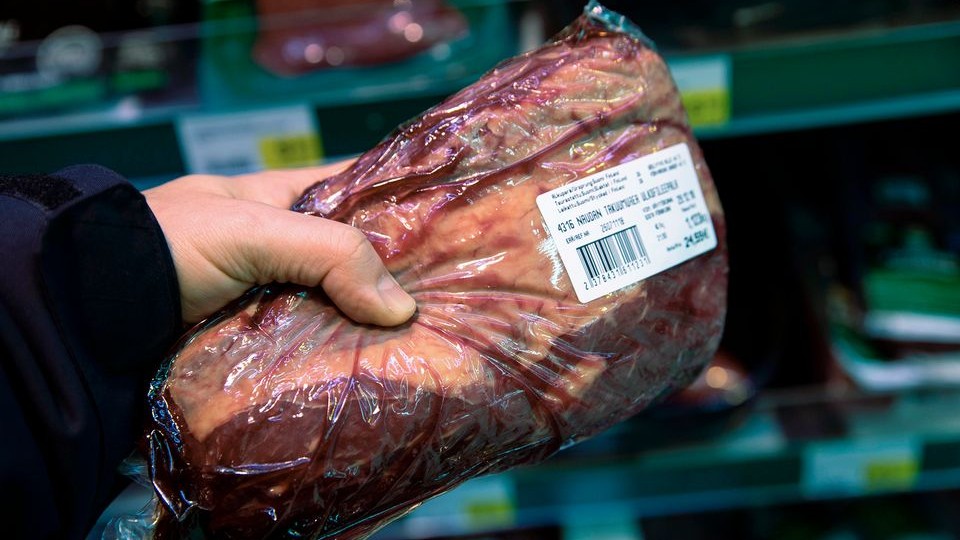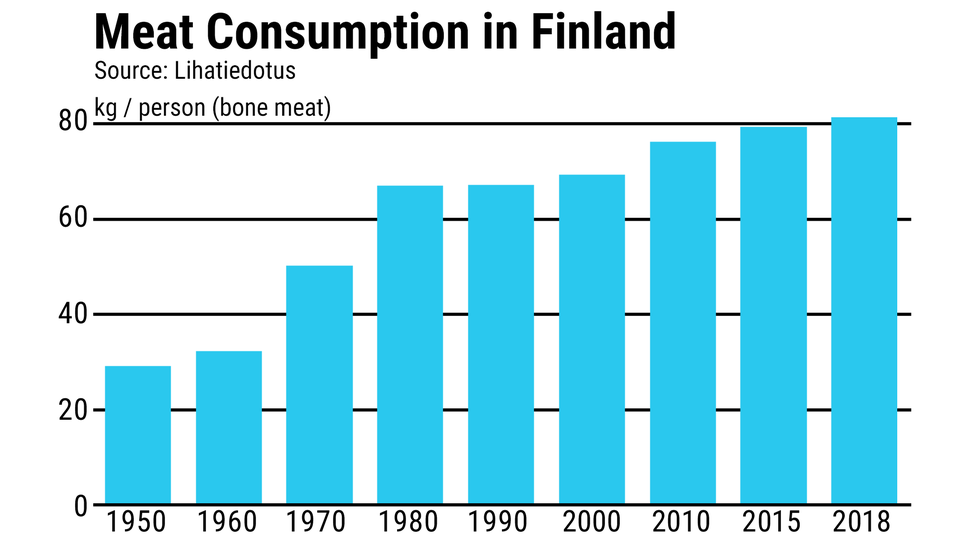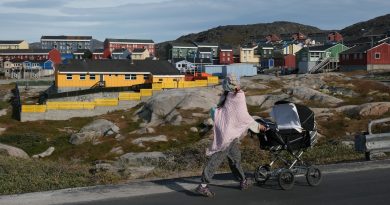Finns eating more meat than ever before, report says

Food production is a major contributor to carbon dioxide emissions, according to a recent report by the Intergovernmental Panel on Climate Change (IPCC), and the consumption of meat in particular should be reduced in order to limit global warming to 1.5 degrees in accordance with the terms of the Paris Agreement.
A report released in January by Finland’s National Institute for Health and Welfare (THL) found that adults in Finland eat too much meat and not enough vegetables.
However, there is no simple solution to reducing meat consumption, according to Mikael Fogelholm, a professor of nutritional science at the University of Helsinki.
“Politicians are very relaxed, they tax meat and think that will solve it. But taxing meat is only one way among many,” says Fogelholm.
A proposal to increase tax on meat became a topic of discussion before April’s general election.
According to Heikki Lehtonen, Research Professor at the Finnish Natural Resources Institute (LUKE), it is difficult to interfere in an individual’s eating habits, because it is such a personal issue.
“I am skeptical that this will be solved through taxation or any other tricks. People should be eating better, but if there is too much pressure, there will be a backlash,” Lehtonen says.
Dramatic rise in meat consumption
On average, people living in Finland consume about 80 kilos of meat a year. Reducing meat consumption is not easy because meat has become part of the Finnish daily diet and is a central part of Finnish food culture.
In the 1960s, when the consumption of meat in Finland was seen as a sign of wealth and well-being, Finns ate less than 40 kilos of meat a year.

“This is an international phenomenon. As the country becomes more prosperous, meat consumption increases,” Fogelholm explains.
According to experts, a return to the 1960s diet is not an option. The best way to reduce meat consumption is to provide consumers with a sufficient number of attractive alternative options.
In recent years, new plant-based products have appeared on store shelves to replace meat in daily cooking.
“Mass catering, product placement and marketing can also produce good results,” says Fogelholm.
Related stories from around the North:
Canada: Community in Arctic Canada finding new ways to produce food, CBC News
Finland: Vegan ham flying off Finnish shelves for Christmas, Yle News
Norway: Is Norway’s farmed salmon as healthy as we think?, Radio Sweden
Russia: Russian grains to reach Japan via Northern Sea Route, The Independent Barents Observer
Sweden: Swedes eating less meat than before, Radio Sweden
United States: New farm bill program aims to fight food insecurity in Alaska, Alaska Public Media



